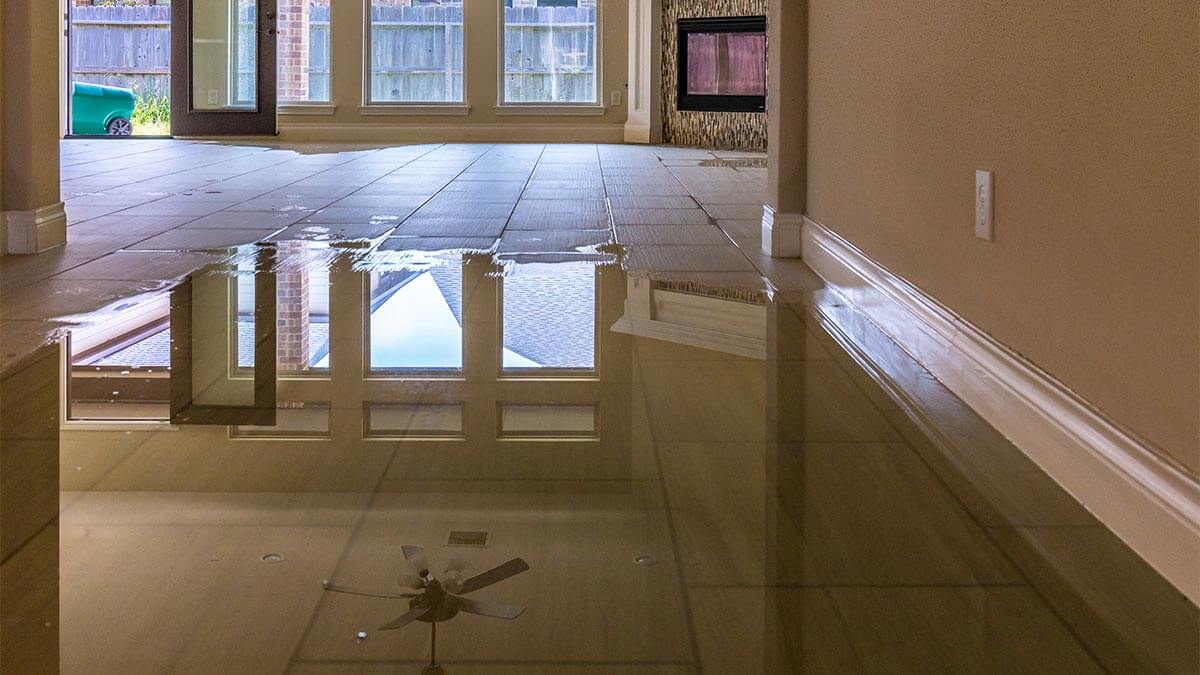Water damage is one of those problems that can sneak up on you, and if you’re selling your home, it’s something you can’t afford to ignore. Whether it’s from a burst pipe, a leaky roof, or an old plumbing issue, buyers want to know what they’re walking into. And in many cases, you’re legally required to tell them.
Disclosing water damage might sound risky, especially if you’re worried about turning buyers away or losing money. But being upfront can actually protect you from lawsuits and delays down the road. In this guide, we’ll break down what counts as water damage, what the law says about disclosures, and what to do if you’re stuck between repairing and just walking away.
If you’re looking to skip the repairs entirely, iBuyer.com gives you a fair cash offer backed by data, not guesswork. No hidden fees. No last-minute drama. Just a fast, simple way to move on your terms.
Instant Valuation, Confidential Deals with a Certified iBuyer.com Specialist.
Sell Smart, Sell Fast, Get Sold. No Obligations.
Disclose Water Damage
- What Counts as Water Damage and Why It Matters
- Are You Legally Required to Disclose Water Damage?
- How and When to Disclose Water Damage to Potential Buyers
- What Happens If You Fail to Disclose Water Damage?
- Should You Repair the Damage or Sell As-Is?
- Reilly’s Two Cents: What I’d Do If I Were You
- Water Damage and Home Sales
- Frequently Asked Questions
What Counts as Water Damage and Why It Matters
Not all water damage looks like a flooded basement. Sometimes, it’s stained drywall from an old roof leak. Other times, it’s soft flooring near a dishwasher that had a slow drip for months. Even damage that’s been fixed can still be a red flag if it wasn’t disclosed properly.
Water damage matters because it can lead to bigger issues like mold, structural rot, or electrical hazards. Buyers see it as a sign there could be hidden problems behind the walls, and they’re not wrong. Even if you’ve done repairs, signs of past damage raise questions. Did you fix it right? Is there mold? What else haven’t you told them?
This kind of damage also affects your home’s value. Inspectors will call it out. Buyers may walk away or ask for repairs before closing. In some markets, water damage, even old or minor, can knock thousands off your asking price.
Being clear about it early helps avoid last-minute surprises. And depending on where you live, not saying anything could get you into legal trouble, which we’ll dive into next.
Are You Legally Required to Disclose Water Damage?
In most states, yes, you’re required to disclose water damage when selling your house. That includes current issues and past ones, even if they’ve been fixed. Why? Because buyers deserve to know if the home they’re buying has had problems that could affect its safety, value, or future repairs.
Disclosure laws vary by state, and so do the forms you’ll need to fill out. For example, in California, sellers must complete a Transfer Disclosure Statement that specifically asks about water intrusion, roof leaks, and past flooding. In Texas, sellers have to list known water damage, previous repairs, and any insurance claims. Meanwhile, in Florida, disclosure isn’t always required in writing, but sellers are still legally obligated to share any known problems that could affect a buyer’s decision.
Some states are stricter than others. In New Jersey, sellers can be sued for fraud if they lie or fail to disclose major issues like mold or flooding. In “caveat emptor” (buyer beware) states like Alabama, the responsibility shifts more to the buyer, but even there, you can’t actively hide damage or lie when asked directly.
Bottom line: you’re better off being honest. If you’re not sure what your state requires, talk to your real estate agent or a local real estate attorney. A little clarity now can save you from legal headaches later.
How and When to Disclose Water Damage to Potential Buyers
The best time to disclose water damage? As early as possible. You don’t want a buyer to discover issues during the inspection, it makes you look dishonest and could cause the deal to fall apart. Instead, get ahead of it by sharing everything you know upfront.
Most sellers disclose water damage using a standard form provided by their real estate agent. This form covers things like past leaks, plumbing issues, mold, and any insurance claims related to water. Be specific. Mention when the damage happened, what caused it, how it was fixed, and if any professional repairs were done. If you’ve got receipts or inspection reports, include them.
Your real estate agent can guide you through the process. They’ll help you word things clearly and avoid legal missteps. And if you’re unsure about anything, don’t guess, just say you’re not sure and explain why.
Remember, buyers aren’t necessarily scared off by water damage. What scares them is uncertainty. Disclosing upfront builds trust and gives you more control over how the issue is framed, especially if it’s been fully repaired.
What Happens If You Fail to Disclose Water Damage?
Failing to disclose water damage doesn’t just risk losing a sale, it could land you in court. If a buyer discovers hidden damage after closing, they may sue you for misrepresentation or fraud. Even if the damage was old or “not that bad,” it can still lead to serious consequences if you didn’t share what you knew.
Home inspectors play a big role here. They’re trained to spot signs of past damage, like warped floors, water stains, or musty smells. If the inspector finds something you didn’t mention, it can delay the sale or cause the buyer to walk away entirely. Worse, if they discover it after moving in, you could be on the hook for repairs, legal fees, or even buying the home back.
Some sellers think they can “wait it out” and hope the buyer doesn’t notice. But that’s a gamble. Even if the sale goes through, the legal risk doesn’t go away. Some buyers come back months, or even years, later when problems resurface.
Bottom line? It’s not worth hiding anything. A transparent sale is a safer, smoother sale.
Should You Repair the Damage or Sell As-Is?
Once you’ve found water damage, you’re faced with a tough choice: fix it or sell the home as-is. Both options have pros and cons, and which one works best depends on how much time, money, and energy you’re willing to invest.
Repairing the damage might help you get top dollar, especially in a competitive market. Buyers love move-in-ready homes, and taking care of issues up front can speed up closing and reduce negotiations. But it’s not always simple. Fixing roof leaks, plumbing issues, or mold can cost thousands, and that’s before you even list the home.
Selling as-is skips the hassle and upfront cost, but usually comes with a lower sale price. Buyers may offer less or ask for credits during closing. Still, if you’re short on time or don’t want to deal with contractors, it can be a good route.
You’ve also got alternative options. Real estate investors and house flippers often look for homes with damage because they plan to renovate and resell. These buyers expect issues, so disclosures don’t scare them off. The downside? They usually make low offers.
That’s where iBuyers come in. Companies offer a middle ground: fair, data-backed cash offers without the delays or lowballing. You don’t need to make repairs or clean for showings. You just tell us about your home, and we’ll handle the heavy lifting, on your timeline.
When you’re deciding, think about what matters more: squeezing out top dollar or moving forward with less stress. Either way, knowing your options helps you stay in control.
Reilly’s Two Cents: What I’d Do If I Were You
I’ve sold homes with water damage before, right here in Florida, and let me tell you, it’s never a fun surprise to uncover. Whether it’s from a burst pipe or a slow roof leak, water damage always seems to show up at the worst time. It’s stressful, especially when you’re trying to sell fast or get a fair price. But here’s what I’ve learned over the years.
First, be upfront. You might be tempted to downplay the damage or assume the buyer won’t notice. Don’t. In my experience, it’s way better to tell buyers everything early than to deal with inspections or lawsuits later. Plus, most buyers appreciate the honesty and feel more comfortable knowing what they’re walking into.
Second, document everything. If you’ve made repairs, even small ones, keep receipts, photos, and any inspection reports. These show buyers that you took the issue seriously and handled it the right way. It builds trust, and that can go a long way when you’re negotiating.
Third, don’t get stuck thinking you only have one option. Not every home with water damage needs to be repaired before it sells. If you’re short on time or money, selling to an investor, flipper, or iBuyer might be the better path. They expect imperfections, and you won’t be penalized for skipping the repairs.
And last, don’t try to do it alone. A good real estate agent, or a trusted cash buyer like iBuyer.com, can help you weigh your options and avoid costly mistakes. Whatever route you choose, remember: being honest and proactive always pays off in the end.
Water Damage and Home Sales
Selling a home with water damage doesn’t have to be a nightmare, but hiding the problem almost guarantees one. Whether the damage was big or small, buyers want to know what they’re getting into. Disclosing the truth early helps you avoid legal issues, builds trust, and sets the stage for a smoother sale.
You’ve got options. You can make repairs, price your home competitively, or sell as-is to someone who’s ready to take it on. And if you’re short on time or energy? iBuyer.com offers a fast, fair cash offer, no repairs, no back-and-forth, and no surprises at the closing table.
The sooner you get honest about water damage, the sooner you can move forward.
Compare Cash Offers from Top Home Buyers. Delivered by Your Local iBuyer Certified Specialist.
One Expert, Multiple Offers, No Obligation.
Frequently Asked Questions
No, laws vary by state. Some require written disclosures, while others follow “buyer beware” rules. However, even in those states, you can still be held liable if you knowingly hide damage.
Yes. Most states require you to disclose past water damage, even if it’s been professionally repaired. Being transparent helps avoid legal issues later.
Absolutely. If the buyer discovers damage that wasn’t disclosed, they can file a claim for misrepresentation or fraud. You could be on the hook for repairs, legal fees, or more.
Yes. If you knew about it, even if it’s been fixed, it’s safer to disclose. Buyers appreciate honesty, and covering it up can lead to problems later.
Sometimes. Even well-repaired damage can make buyers nervous. It may affect your asking price or how quickly your home sells, depending on the local market.
It can be. Cash buyers, like iBuyers, investors, or flippers, are often more comfortable with damaged homes. You skip repairs, inspections, and long delays.
Reilly Dzurick is a seasoned real estate agent at Get Land Florida, bringing over six years of industry experience to the vibrant Vero Beach market. She is known for her deep understanding of local real estate trends and her dedication to helping clients find their dream properties. Reilly’s journey in real estate is complemented by her academic background in Public Relations, Advertising, and Applied Communication from the University of North Florida. This unique combination of skills has enabled her to seamlessly blend traditional real estate practices with cutting-edge marketing strategies, ensuring her clients’ properties gain maximum visibility and sell quickly.
Reilly’s career began with a strong foundation in social media marketing and brand communications. These skills have proven invaluable in her real estate practice, allowing her to offer innovative marketing solutions that set her apart in the industry. Her exceptional ability to understand and meet clients’ needs has earned her a reputation for providing a smooth and satisfying transaction process. Reilly’s commitment to client satisfaction and her innovative approach have garnered her a loyal client base and numerous referrals, underscoring her success and dedication in the field.
Beyond her professional achievements, Reilly is passionate about the Vero Beach community. She enjoys helping newcomers discover the charm of this beautiful area and find their perfect home.
Outside of work, she loves exploring Florida’s stunning landscapes and spending quality time with her family. Reilly Dzurick’s combination of expertise, marketing savvy, and personal touch makes her a standout real estate agent in Vero Beach, Florida.




